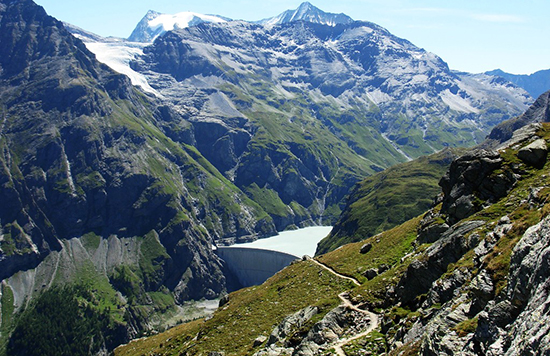The carbon concentration in the atmosphere is rising fast; the Paris Climate Agreement requires us to leave the fossil fuel economy well before 2050; and Earth Overshoot Day is already in early August. Could it be that climate change and resource constraints do have an influence on countries’ future performance? Should they wait for others to act? Are they too small to act? Or, might they be too exposed to wait? Thanks to a grant from Stiftung Mercator Schweiz and Paul Schiller Stiftung, we had the chance to explore these questions for Switzerland. Building on three workshops, we developed “Achtung, Liebe Sweiz!” or “Watch Out, Dear Switzerland!”—a proposal that identifies the challenges and proposes steps Switzerland, or any country, could take to increase its likelihood of future success.
At least 36% of Swiss voters embraced the idea to manage Switzerland’s Footprint in last September’s historical referendum on Switzerland’s green economy. They endorsed the idea that by 2050, Switzerland should have Footprints that would fit on one Earth (rather than on the 3 it currently takes). But many may have judged such a transformation to be too fast, too large, or just not necessary enough. We, though, believe it is a productive investment. After all, it is up to each nation, each government, to set themselves up for prosperity in the face of emerging risks linked to climate change and resource constraints. In this respect, we believe Switzerland is not too small to act. On the contrary, if Switzerland believes that the global trends are unmovable, there is nothing smarter than to prepare itself for such a world. If anything, because the wildly successful Swiss economy needs over four times more than what Swiss ecosystems can regenerate, we believe it is too exposed to wait. And the issue can be addressed, in a financially beneficial way. This is what we argue in our action plan. What‘s true for Switzerland is true for other countries. We would be thrilled to get your feedback. Please send us your comments and criticisms to info@footprintnetwork.org.






